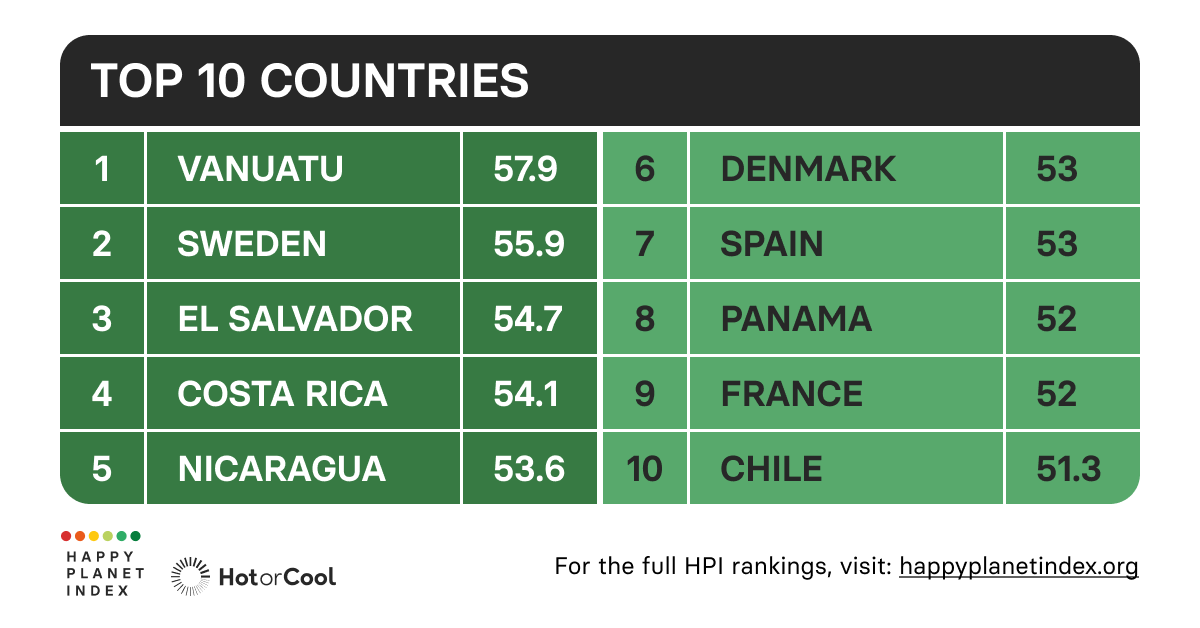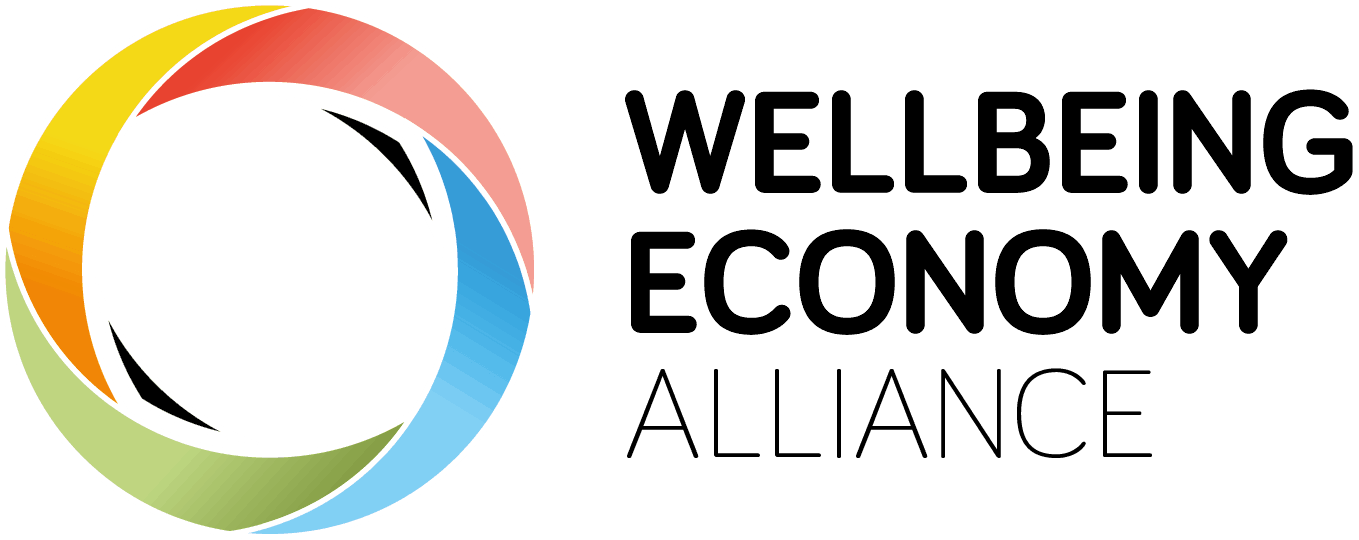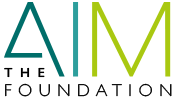ABOUT THE Project
Rather than pursuing growth at all costs, even if it’s harmful to wellbeing or sustainability, what if we strived to create wellbeing and pursue sustainability, no matter the impact on growth? The Happy Planet Index (HPI) helps to answer the question: “Is it possible to live good lives without costing the Earth?”. It provides a compass to guide nations towards genuine progress.
The HPI was first developed in 2006 by Nic Marks and colleagues at the New Economics Foundation. It turned conceptions of progress on their head, ranking the small Pacific island nation Vanuatu as the country that came closest to achieving sustainable wellbeing at that time. It has been updated five times since then and received global acclaim and interest.
Read more
The Happy Planet Index (HPI) combines three metrics to show how efficient different countries are at using environmental resources to enable their residents to lead long, happy lives.
1. Wellbeing: How satisfied the residents of each country say they feel with life overall, on a scale from zero to ten, based on data collected as part of the Gallup World Poll.
2. Life expectancy: The average number of years a person is expected to live in each country, according to the United Nations Development Programme (UNDP).
3. Carbon Footprint: Carbon footprint: estimate of the per capita greenhouse gas emissions associated with consumption and economic activity within a country. We have used the data from the World Inequality Database, which in turn is based on the Global Carbon Atlas, and supplemented by data from the EORA Global Supply Chain Database. The final data includes greenhouse gases produced directly within a country, for example for heating, electricity production or transport. But it also includes the greenhouse gases emitted in the production of goods and services consumed within that country, regardless of where they were produced. It includes emissions associated with individual consumption, but also emissions associated with the activities of government and business investment.
We use a traffic light system – red, amber, and green – to show how well countries score on each element. Before combining the three metrics, we make adjustments to ensure that no single component dominates the overall calculations. Details can be found in the methodology report.
Every society clings to a myth by which it lives. Ours is the myth of economic growth.
– Tim Jackson, Chasing Progress
The crises we face: persistent inequalities, accelerating climate breakdown, and rapid biodiversity loss are interconnected and stem from the same core problem: our economies are structured, governed, and measured to promote economic growth over collective wellbeing.
Too often governments prioritise accelerated economic growth above all other concerns. They lose sight of what truly matters – long, happy, sustainable lives for people around the world.
No two nation’s economic systems are exactly the same, but they all operate on a similar logic: increasing Gross Domestic Product (GDP) is inherently good because it increases everyone’s wellbeing and prosperity.
In reality, GDP growth on its own does not mean a better life for everyone, particularly in countries that are already wealthy. It doesn’t take into account inequality, the things that really matter to people like social relations, health, or how they spend their free time, and crucially, the planetary limits we are up against.

Review the HPI Methodology











